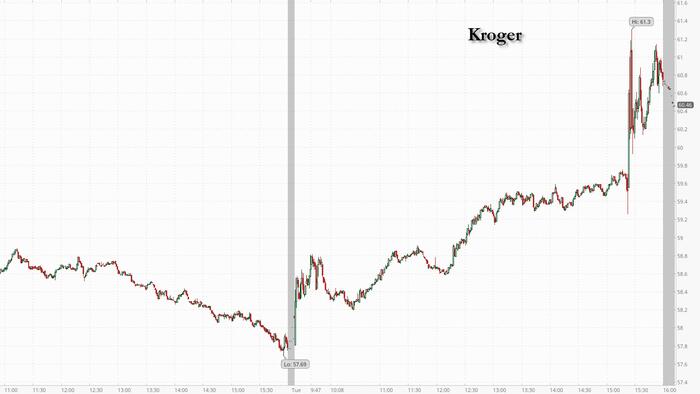The Biden administration has taken a decisive stance against corporate mergers, with significant implications for the grocery industry. Recently, U.S. District Judge Adrienne Nelson responded to the Federal Trade Commission’s (FTC) concerns by blocking Kroger’s proposed $20 billion acquisition of Albertsons, a move framed as an effort to preserve competition in the grocery sector. FTC Chair Lina Khan, known for her aggressive approach towards mergers, argued that the merger would lead to increased prices for consumers and a reduction in competition. This decision highlights the administration’s ongoing struggle to exert influence during its waning days, as the ruling aligns with their broader agenda against consolidation in various industries.
The ruling comes amid a backdrop of skepticism toward the idea that larger grocery chains can effectively serve consumers better. The court agreed with the FTC that allowing Kroger to acquire nearly 2,000 additional stores from Albertsons would enable Kroger to dominate the supermarket sector, stifling competition. Critics of the merger, including Judge Nelson, underscored that this merger would remove significant head-to-head competition, failing to acknowledge the remarkably low profit margins within the grocery industry—often cited at less than 1%. This legal battle reflects a broader pattern, as the FTC has previously blocked other high-profile mergers, such as the JetBlue-Spirit deal, which led to significant operational disruptions for the latter.
For Kroger and Albertsons, this setback is monumental, particularly as both companies have expended substantial resources on legal and financial preparations since the merger was proposed in October 2022. Executives from both firms viewed this merger as vital to compete with larger entities like Walmart and Amazon, who dominate the grocery market. The potential blocking of the merger could lead Kroger to the difficult decision of abandoning the deal, potentially resulting in a $600 million breakup fee payable to Albertsons. The ramifications of this ruling extend beyond just financial considerations; they could disrupt plans for future investments intended to keep prices competitive.
Kroger, the largest traditional supermarket operator in the U.S., currently holds around 9% of the grocery market, while Albertsons follows with 5%. In the face of their attempts to combine forces, they encounter increasing competition not only from Walmart but also from Costco, which continues to close the gap in grocery sales. While Kroger had promised significant investments to reduce prices at Albertsons locations, the FTC maintained that the merger would instead provide an incentive for Kroger to raise prices due to a diminished competitive landscape. The FTC’s apprehensions regarding market concentration echo a prevailing sentiment among regulators about the necessity of maintaining robust competitive dynamics in sectors that heavily affect consumer costs.
Judge Nelson’s preliminary injunction, while a significant roadblock, does not conclusively end the merger proposal. Both parties retain the option to contest the ruling through continuing litigation, raising legal arguments against the merger’s prohibition in the FTC’s administrative court. A trial is expected to commence no earlier than December 18, suggesting that the matter will extend into the final days of the administration, keeping the future of the deal shrouded in uncertainty. In the meantime, market reactions have been mixed, with Kroger’s shares seeing an uptick while Albertsons’ stock fell after the news broke.
Overall, the Biden administration’s firm stance against major mergers, as exemplified by this case, indicates a prioritization of perceived consumer interests over corporate ambition. The ongoing legal battles surrounding this merger reflect broader concerns about market dynamics and the power of large grocery chains, emphasizing the administration’s commitment to fostering competition. As the administration enters its final phase, this decision becomes a critical chapter in its regulatory story, providing a case study in the complexities of modern antitrust law, market concentration, and corporate governance. The outcomes of this and similar cases will likely shape the business landscape as well as regulatory approaches to mergers and acquisitions going forward.

